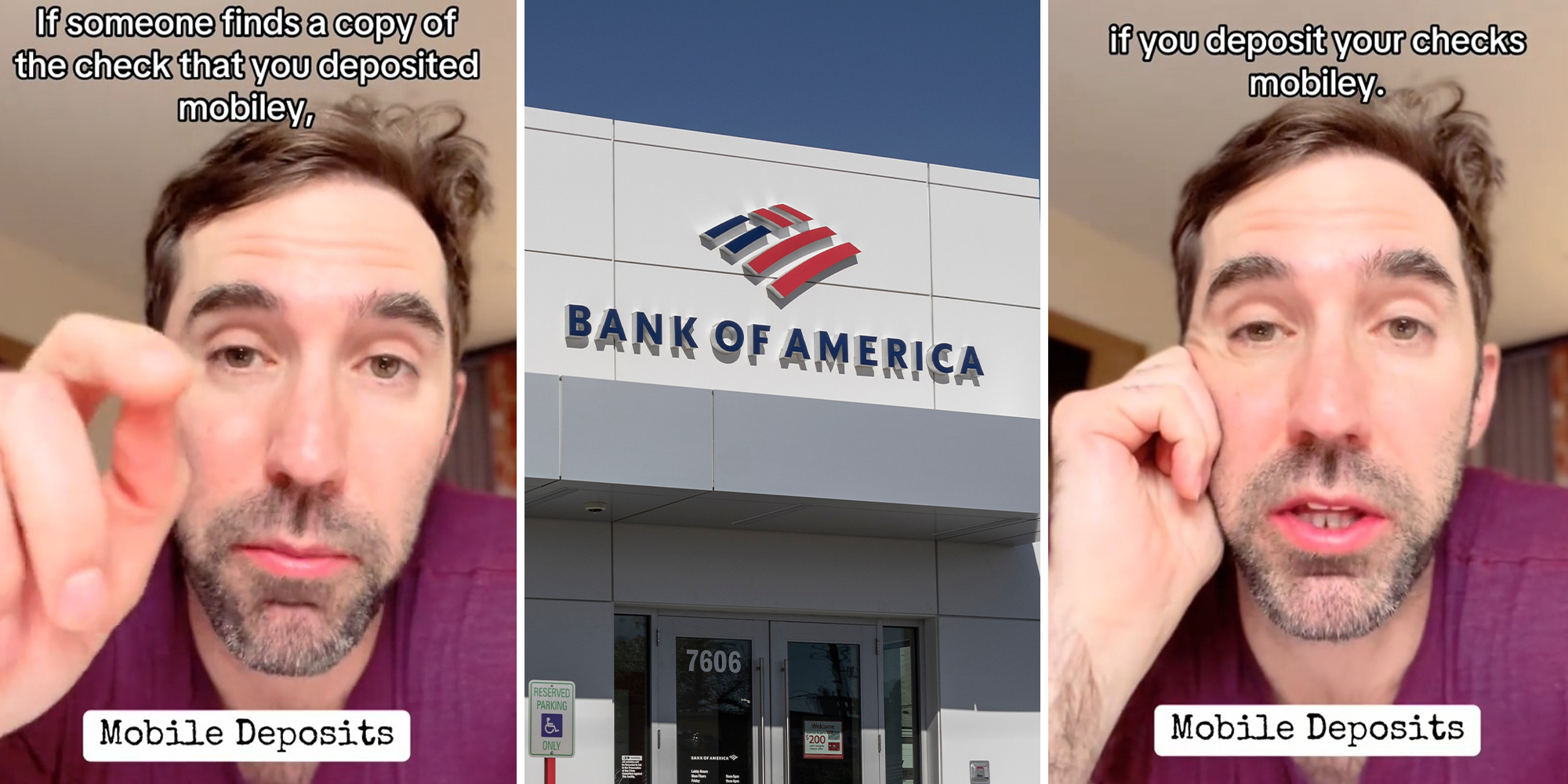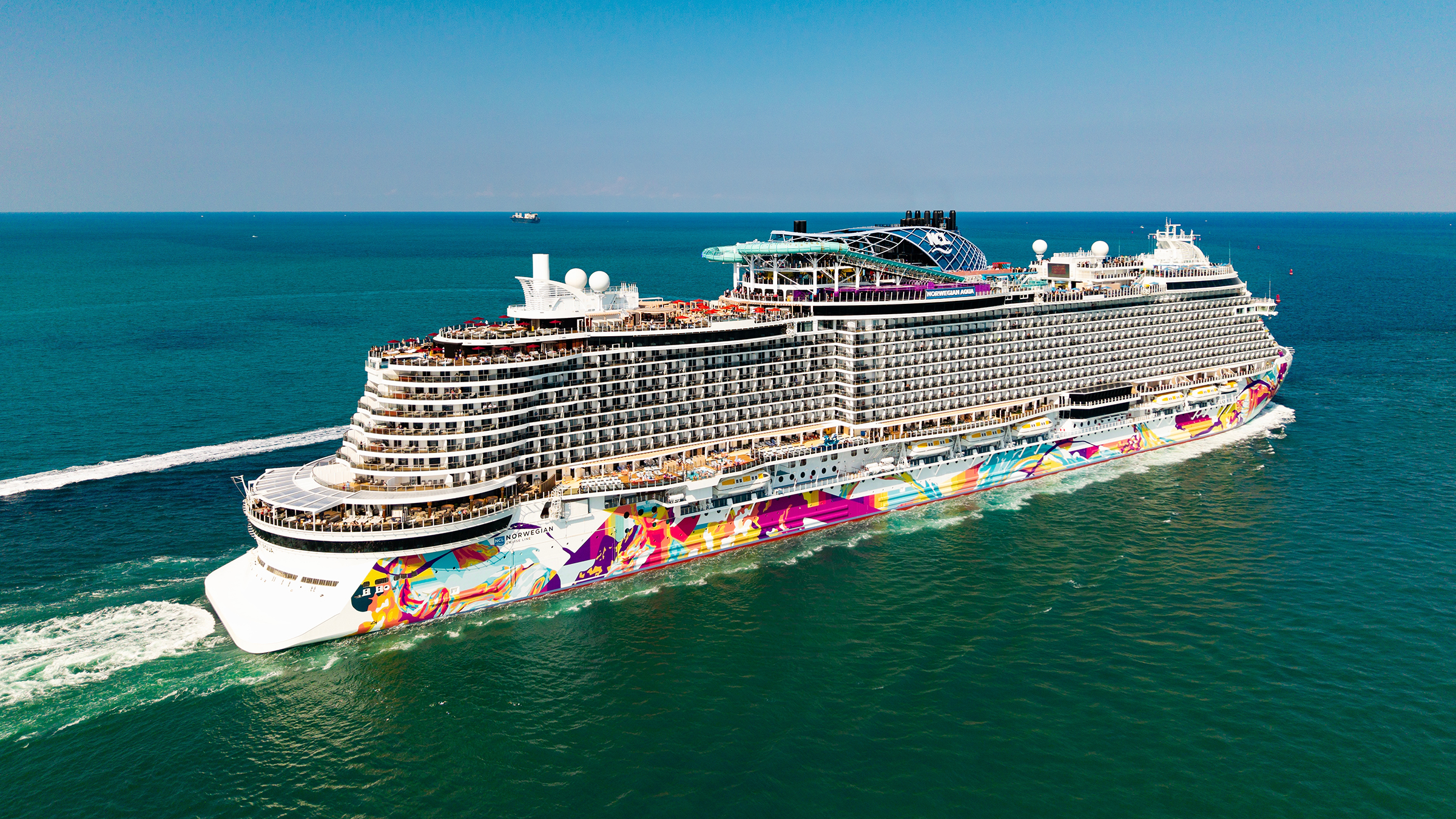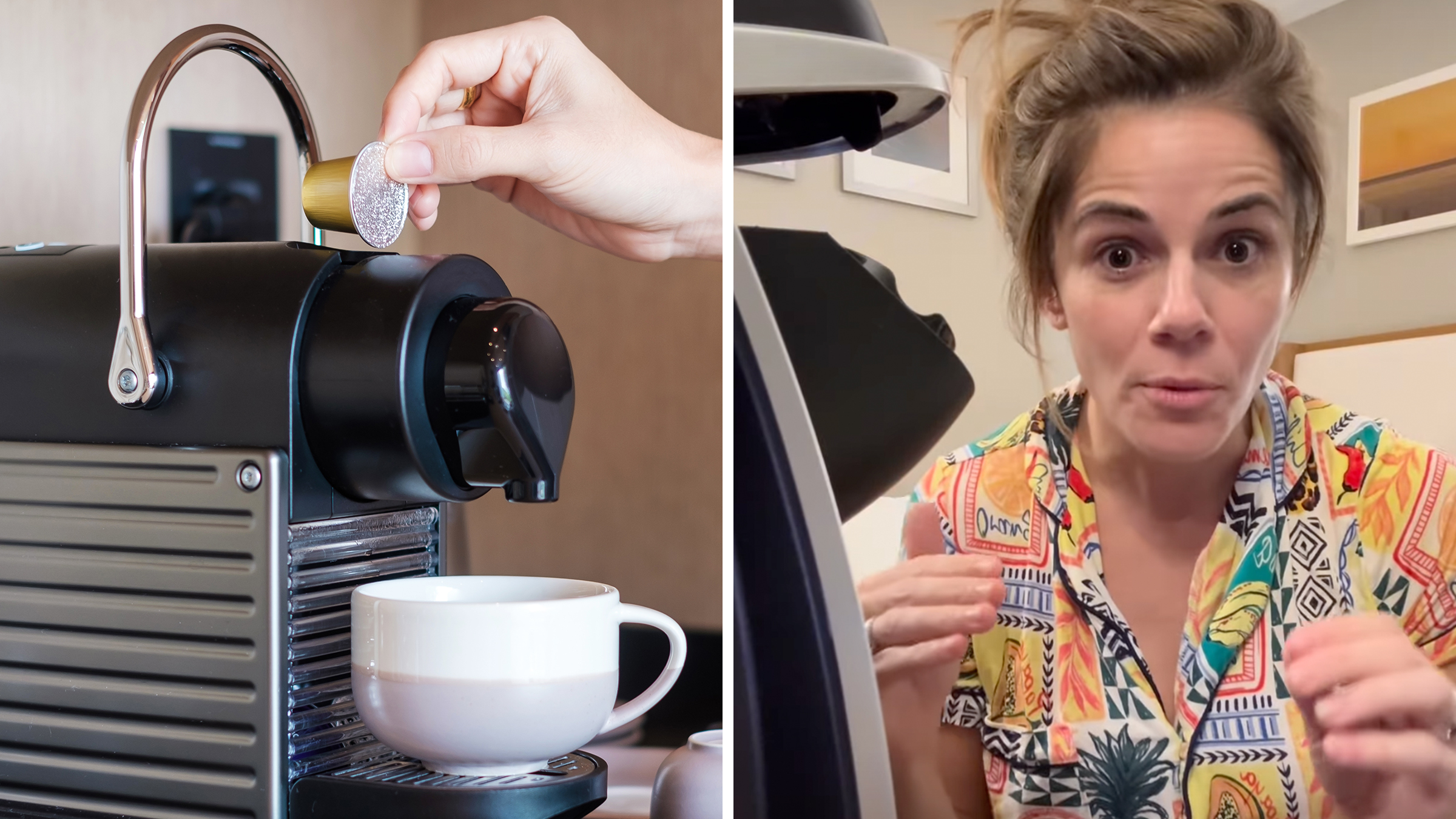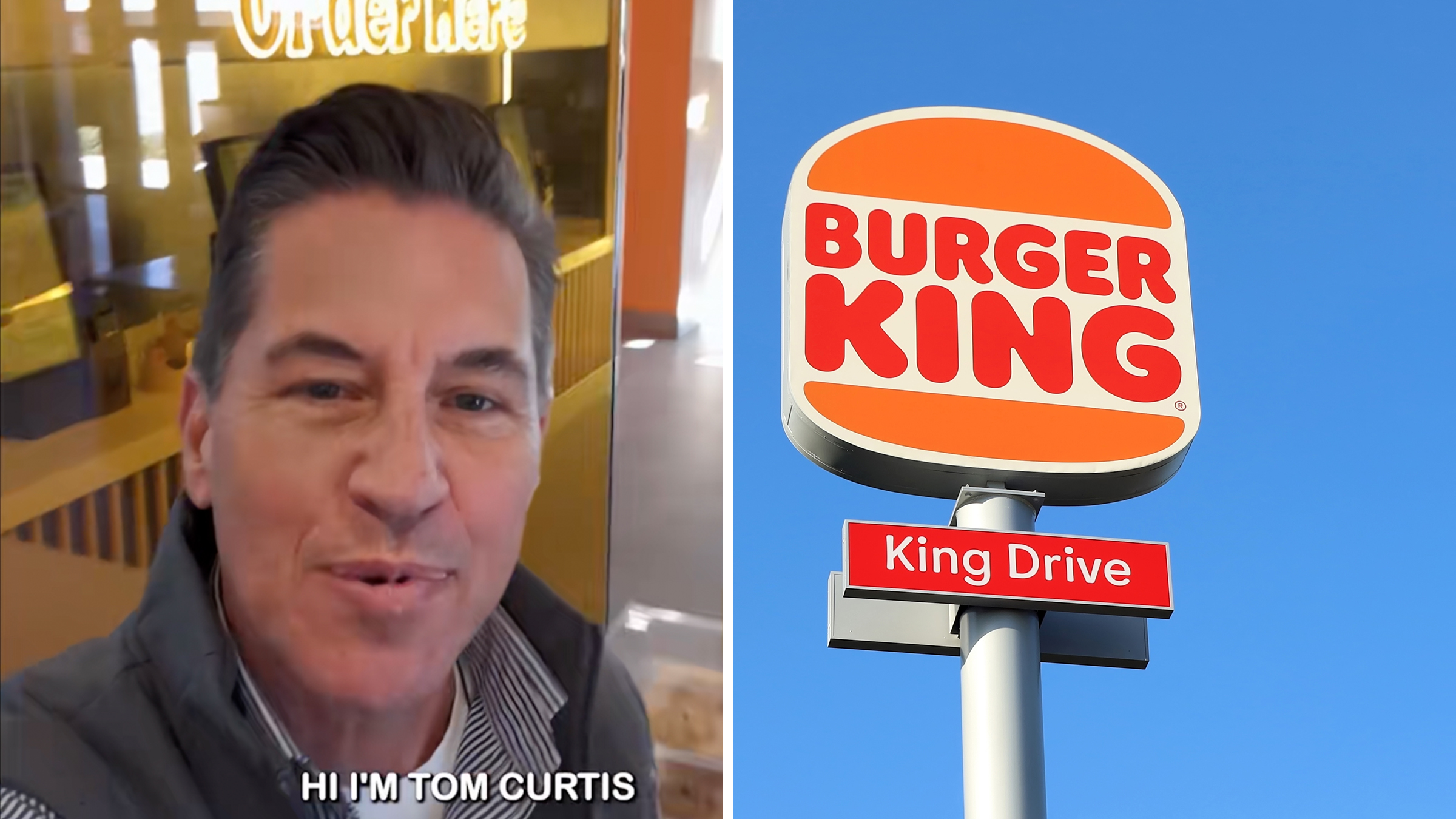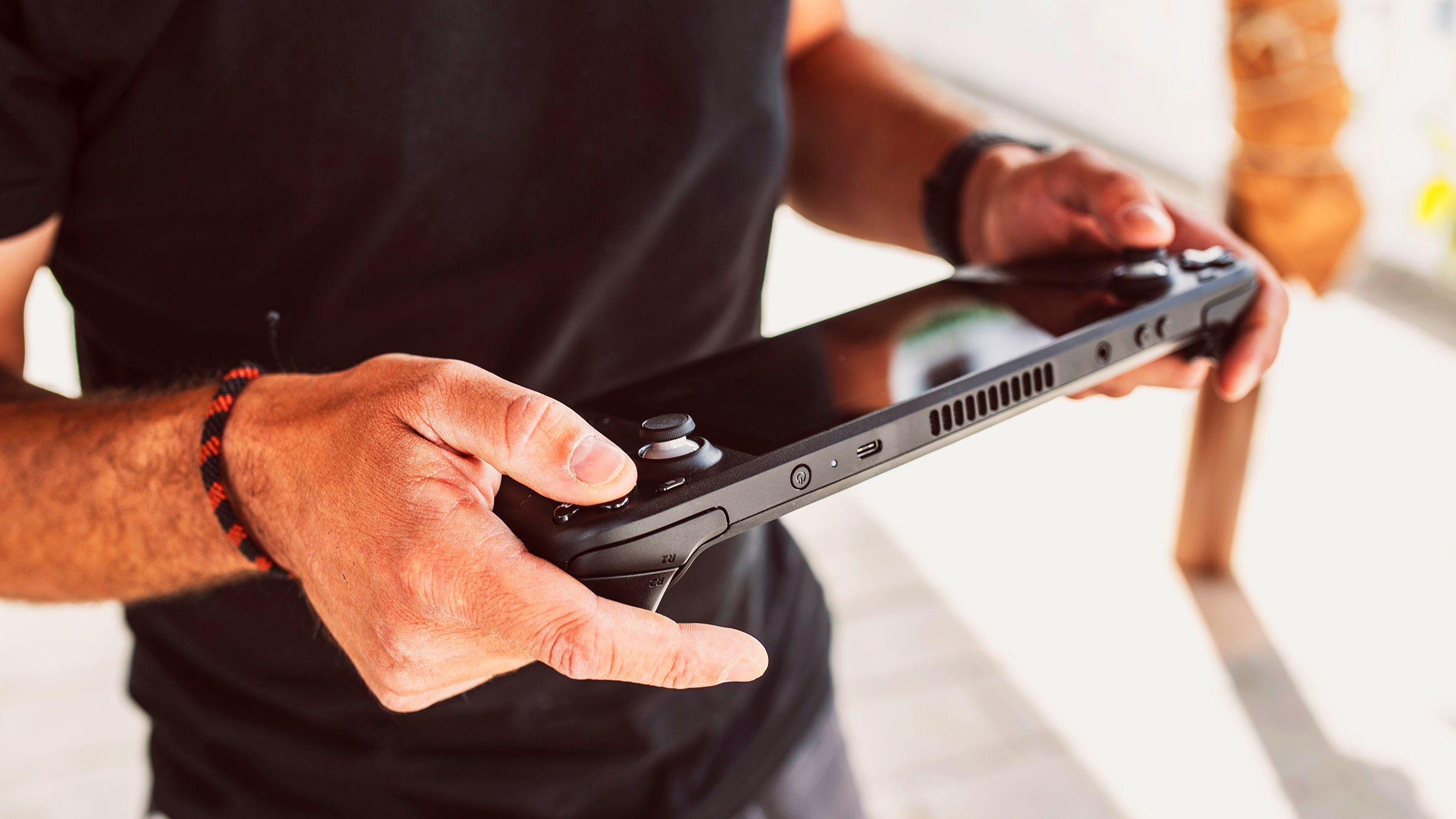Personal banking can often present complex tasks to customers in a simple format requiring little interaction with a bank teller or employee.
That might not always be a good thing.
A comedian says he deposited a check to his bank account using Bank of America's mobile app, which submits photos of the paper check to an account. While he was waiting for the check to clear to his account and be fully deposited, he says a copy of it was stolen by someone who then deposited it at a Bank of America ATM, where the check cleared and was recalled from his bank account.
In the video posted to TikTok, standup comedian Michael Palascak (@michaelpalascak) says he was the victim of check fraud in this instance.
"Here's something you should know about depositing your checks mobilely," he says in the video. "If someone finds a copy of the check that you deposited mobilely and they go to a Bank of America ATM and they deposit it into the ATM, even though it has your name on it and you signed it, and you said for deposit only and you already deposited it mobilely, the Bank of America ATM will still accept it."
He says this occurred in Oakland and warns others of this issue.
@michaelpalascak Here’s Something You Should Know. #fraud #bank #standupcomedian #independentartist
♬ original sound - michaelpalascak
The Daily Dot has reached out to Palascak via TikTok direct message as well as to Bank of America via email regarding the video.
Can a check be cashed twice?
Cashing checks twice became a popular way to get more bucks per check in the 2010s, when mobile banking became standard. Those who received checks in earnest could deposit them via mobile and then again in an ATM or with a bank teller, effectively debiting the person who made the check twice. While Palascak clarified to commenters that he was only holding on to the check long enough to clear before he intended to mark it as void and dispose of it, it was still taken by another party and re-deposited in a similar manner.
Victims of bank fraud are not typically liable for stolen funds from checks cashed by bad actors, but banks may require them to prove they were the victim of fraud and did not willingly leave themselves open to it. One of the first steps to proving that the intended party did not cash the check is filing an affidavit with the bank, which is a legal document.
Viewers left comments that fears of similar situations have so far prevented them from holding on to any checks longer than absolutely necessary.
"I put the bank name on it and once it goes thru I shred it," one commenter wrote.
"I always wrote void right after I do it," another shared.
"I was just wondering if I was being dramatic to hold then destroy checks," one said.
Others offered tips to the poster from their own banking experience, both as tellers and customers.
"I’ve worked at a company who writes a lot of checks," one commenter wrote. "The second deposit will get rejected from the issuer when the checks number shows cashed twice."
"Was your identity stolen?" another asked. "They would have to forge your endorsement to themself. Physical checks are honored before mobile deposits."
"Just make sure you always write for mobile deposit only on the back of your check," a commenter wrote. "The bank that takes a check for deposit with a restrictive endorsement will not be able to process it."
The internet is chaotic—but we'll break it down for you in one daily email. Sign up for the Daily Dot's web_crawlr newsletter here to get the best (and worst) of the internet straight into your inbox.
